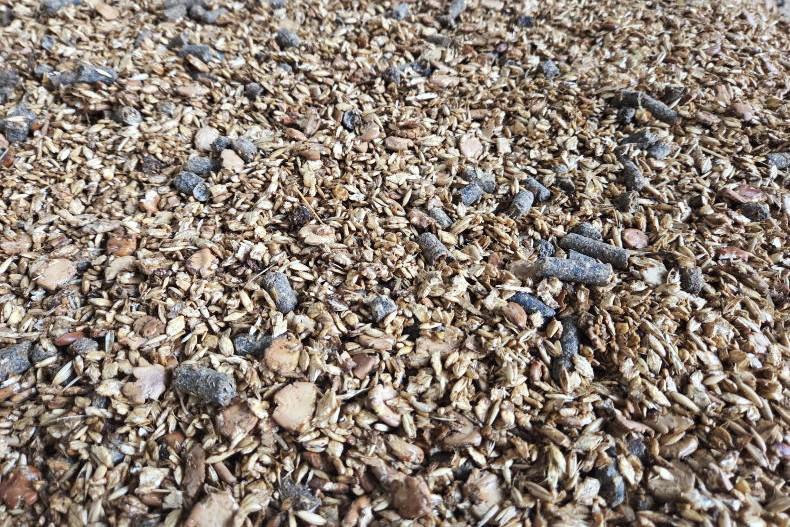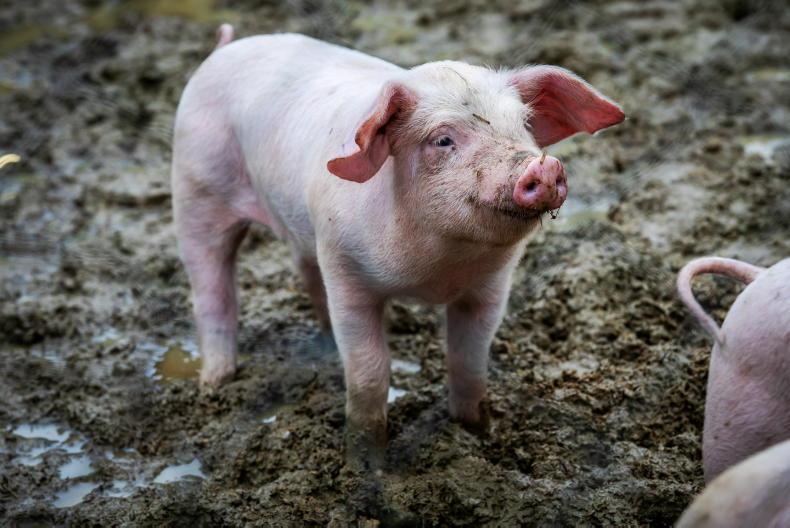Proposals for a €100m rescue package for the Republic of Ireland’s pig industry have been submitted to Government.
The emergency plan envisages that the rescue fund will be jointly financed by a State grant of €50m, along with a producer contribution of €50m sourced by way of a new statutory levy. However, the industry proposal accepts that the full €100m cost of the package will initially have to be carried by the State.
The Pig Stability Fund plan was drawn up by Meat Industry Ireland (MII), the IFA and the Irish Grain and Feed Association (IGFA) and was submitted to the Department of Agriculture on Tuesday.
The key aspects of the proposed plan are:
Establish a State-administered fund to provide an immediate cash injection to pig farmers to avoid the demise of the sector at primary and processing level.This fund will be jointly funded by a State contribution of €50m along with a long-term fund sourced by way of a new statutory levy which would deliver a further €50m over 14 years. However, the State will have to initially provide the full €100m.The statutory levy to be set at 90c/pig (equivalent of 1ckg) on all pigs slaughtered in the Republic of Ireland or exported to Northern Ireland. Based on the 2021 output, this would generate a revenue stream of about €3.6m/annum (based on output of about 4m pigs/annum);Levy to be compulsory on all farmers producing finished pigs within the sector.A sharp rise in compound feed costs, combined with poor prices, has left pig farmers facing losses of close to €50 per pig since last autumn.
Teagasc estimate that pig farmers are currently losing around €56,000/month on average and this figure is rising.
Decision to exit
Up to 5% of pig farmers have already been forced into a decision to exit, with a further 20–30% at serious risk of failure due to the current crisis, Teagasc claimed.
MII, IFA and IGFA maintained that the pig sector is under serious threat without significant funding in the medium-term.
While the submission accepted that there were just 270 commercial pig producers, it pointed out that the industry supported up to 8,000 jobs in total and generated €1.8bn in output and €940m in exports.
Proposals for a €100m rescue package for the Republic of Ireland’s pig industry have been submitted to Government.
The emergency plan envisages that the rescue fund will be jointly financed by a State grant of €50m, along with a producer contribution of €50m sourced by way of a new statutory levy. However, the industry proposal accepts that the full €100m cost of the package will initially have to be carried by the State.
The Pig Stability Fund plan was drawn up by Meat Industry Ireland (MII), the IFA and the Irish Grain and Feed Association (IGFA) and was submitted to the Department of Agriculture on Tuesday.
The key aspects of the proposed plan are:
Establish a State-administered fund to provide an immediate cash injection to pig farmers to avoid the demise of the sector at primary and processing level.This fund will be jointly funded by a State contribution of €50m along with a long-term fund sourced by way of a new statutory levy which would deliver a further €50m over 14 years. However, the State will have to initially provide the full €100m.The statutory levy to be set at 90c/pig (equivalent of 1ckg) on all pigs slaughtered in the Republic of Ireland or exported to Northern Ireland. Based on the 2021 output, this would generate a revenue stream of about €3.6m/annum (based on output of about 4m pigs/annum);Levy to be compulsory on all farmers producing finished pigs within the sector.A sharp rise in compound feed costs, combined with poor prices, has left pig farmers facing losses of close to €50 per pig since last autumn.
Teagasc estimate that pig farmers are currently losing around €56,000/month on average and this figure is rising.
Decision to exit
Up to 5% of pig farmers have already been forced into a decision to exit, with a further 20–30% at serious risk of failure due to the current crisis, Teagasc claimed.
MII, IFA and IGFA maintained that the pig sector is under serious threat without significant funding in the medium-term.
While the submission accepted that there were just 270 commercial pig producers, it pointed out that the industry supported up to 8,000 jobs in total and generated €1.8bn in output and €940m in exports.








SHARING OPTIONS